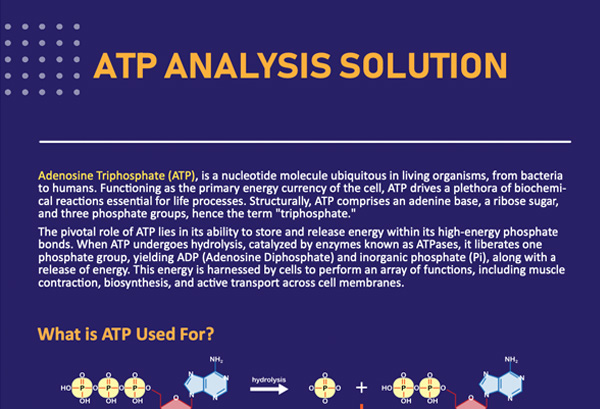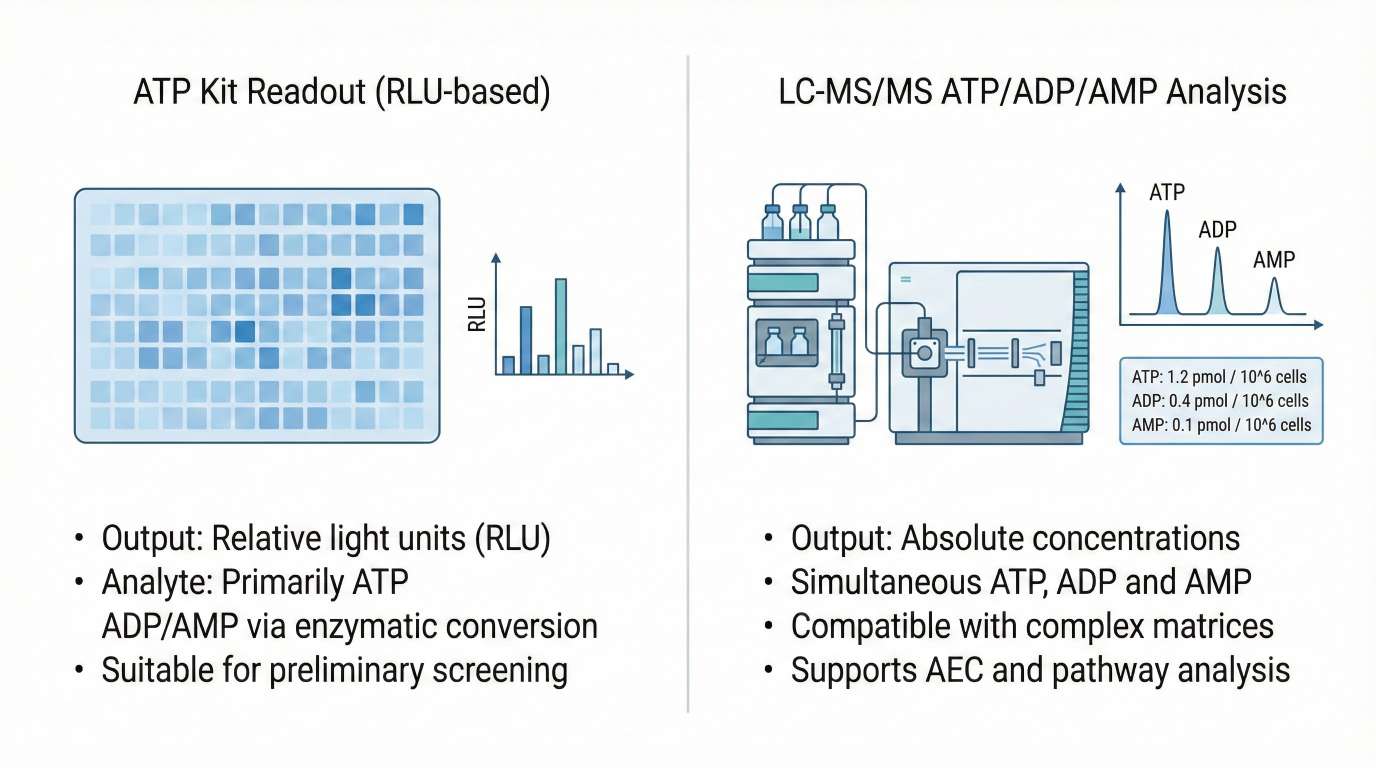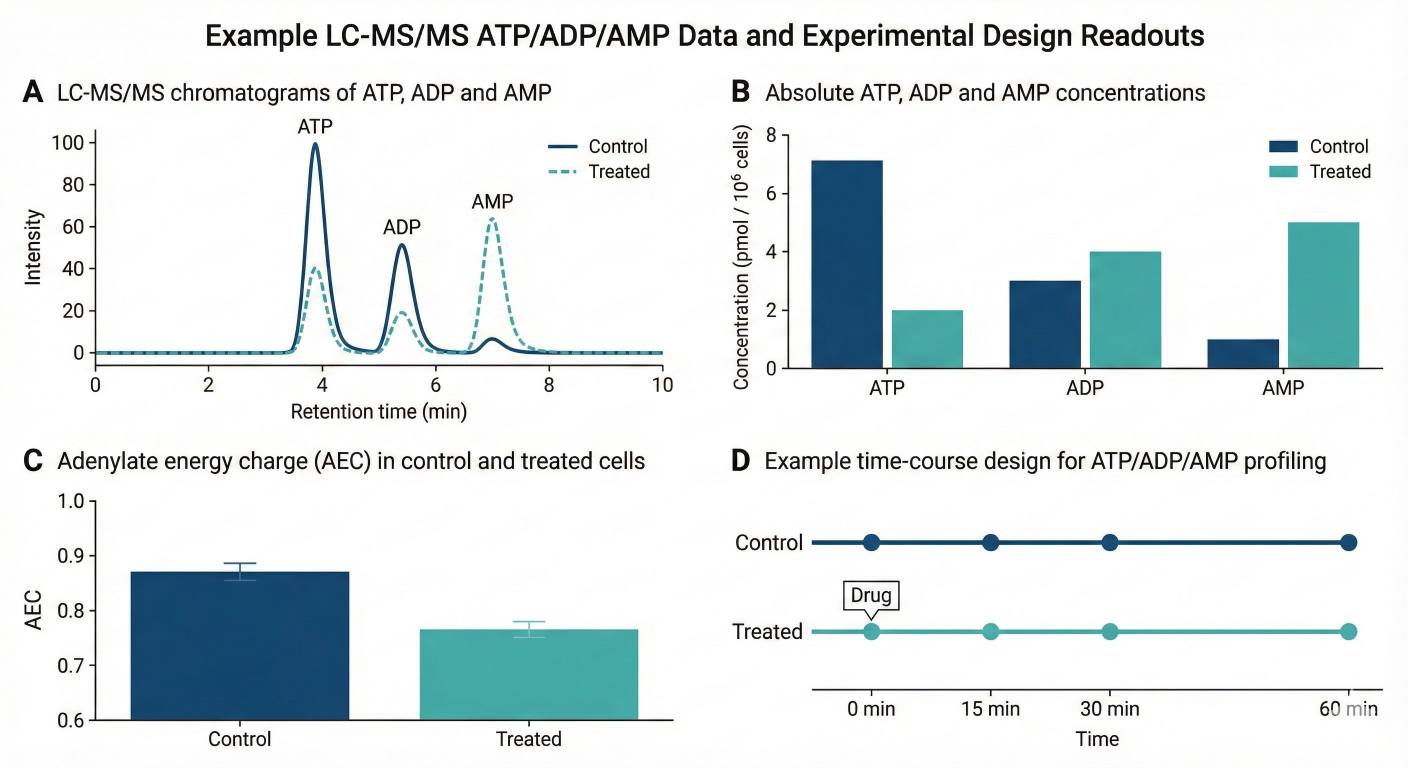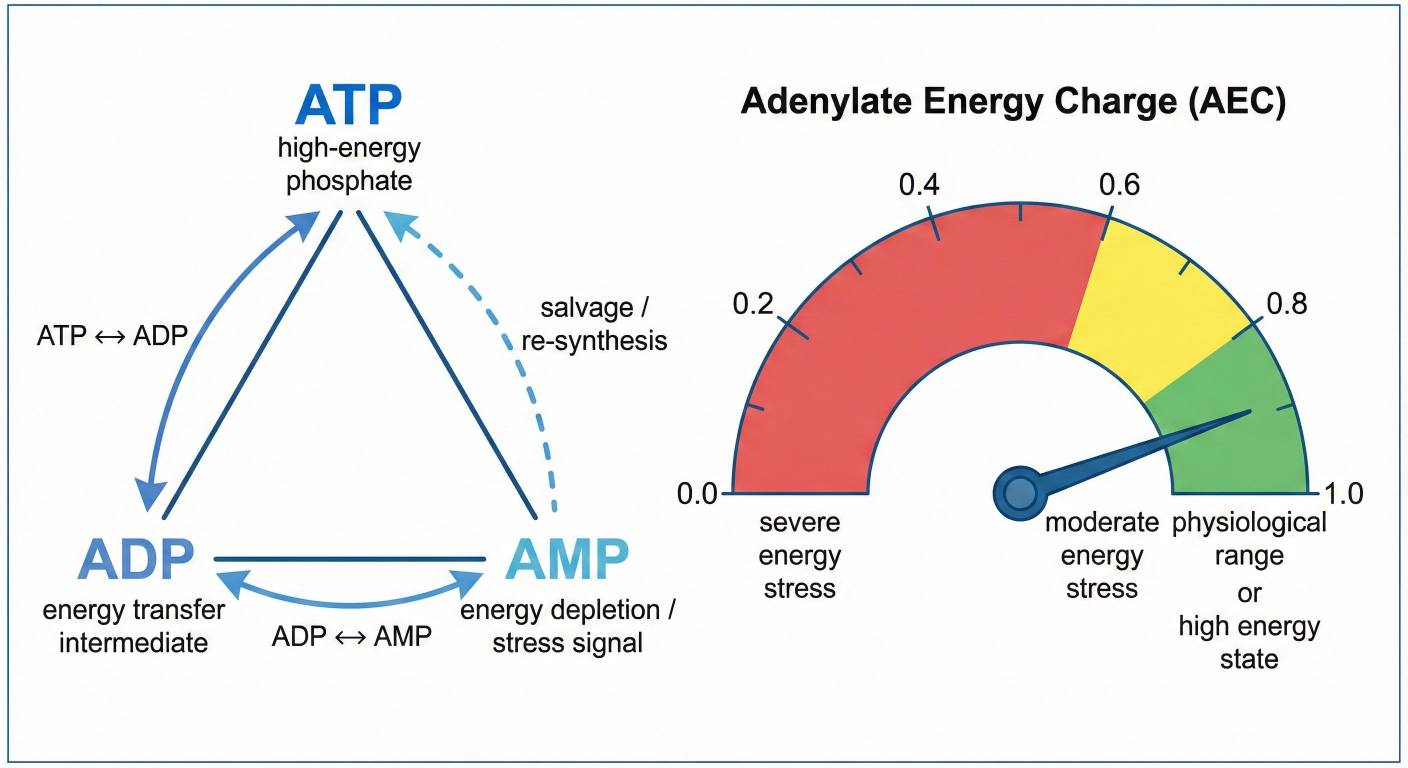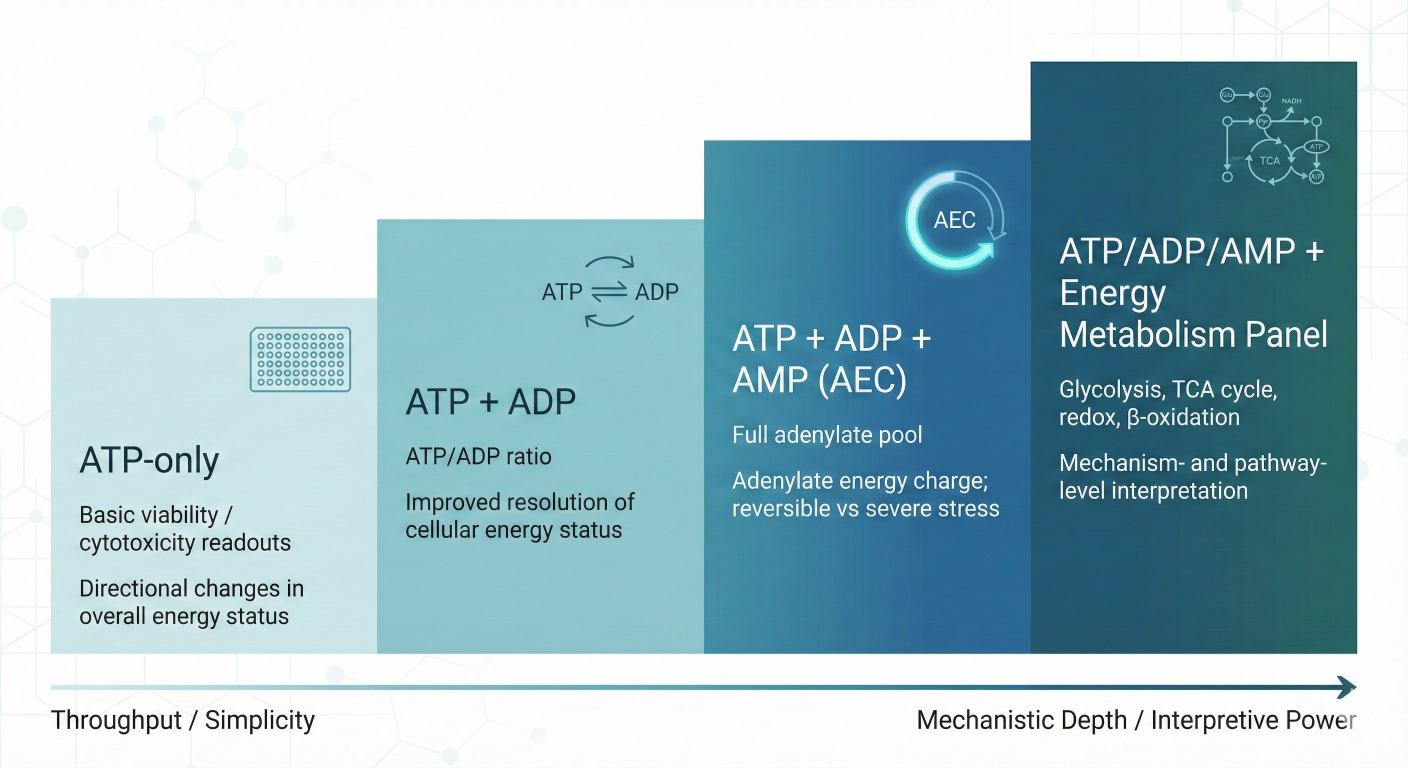Adenosine Triphosphate Analysis Service
Submit Your InquiryWhat is Adenosine Triphosphate (ATP)
Adenosine Triphosphate (ATP), a cornerstone of cellular biology, is a multifaceted molecule with paramount significance. Comprising adenine, ribose, and three phosphate moieties, ATP's prominence derives from its role as the primary energy reservoir within cells. It is aptly regarded as the "molecular currency" of biological energy transactions.
ATP metabolism analysis serves as a critical domain of inquiry owing to its profound implications. Delving into the intricacies of ATP generation, utilization, and regulation, this analytical pursuit unravels the intricacies of cellular bioenergetics. By dissecting the metabolic pathways involved in ATP synthesis, such as glycolysis, the citric acid cycle, and oxidative phosphorylation, it elucidates the mechanisms by which cells harness energy. Furthermore, it offers a window into the molecular orchestration of fundamental cellular functions, encompassing muscular contraction, nerve impulse propagation, and active molecular transport. Beyond these fundamental insights, ATP metabolism analysis assumes clinical relevance, as aberrations in ATP metabolism are intricately associated with an array of pathological conditions. This analytical framework informs diagnostic approaches and therapeutic interventions. In the realm of pharmaceutical innovation, ATP metabolism analysis informs drug discovery endeavors by providing a foundation for the development of targeted therapeutics. Thus, this pursuit serves as an invaluable tool for unraveling the intricacies of biological energy dynamics, underpinning both basic scientific inquiry and applied medical research.
Specific Services Offered for Adenosine Triphosphate (ATP) Metabolism Analysis by Creative Proteomics
ATP Concentration Measurement: Using mass spectrometry to measure ATP levels in samples, tracking changes within cells or organisms.
ATP Biosynthesis Pathway Study: Analyzing ATP synthesis pathways (e.g., glycolysis, citric acid cycle, oxidative phosphorylation) with mass spectrometry techniques.
ATP Degradation Pathway Investigation: Exploring ATP degradation pathways, including ATP hydrolysis and AMP synthesis, to understand ATP breakdown.
Enzyme Activity Assessment: Evaluating enzyme activities associated with ATP metabolism, such as ATP synthase and ATPases.
Metabolite Analysis: Identifying and quantifying intermediate metabolites in ATP metabolism to gain insights into cellular or organismal metabolic pathways.
Adenosine Triphosphate Metabolomics Analytical Techniques
Liquid Chromatography Mass Spectrometry (LC-MS/MS): Our LC-MS/MS, equipped with Thermo Fisher Q Exactive Series instruments, delivers high-resolution and sensitivity for precise ATP and metabolite analysis. It quantifies ATP, offering a comprehensive understanding of its metabolism.
Gas Chromatography Mass Spectrometry (GC-MS/MS): Utilizing the Agilent GC-MS 7890A/5975C, we examine ATP metabolites, unveiling ATP's metabolic pathways. GC-MS/MS provides valuable insights into cellular bioenergetics and ATP-associated processes.
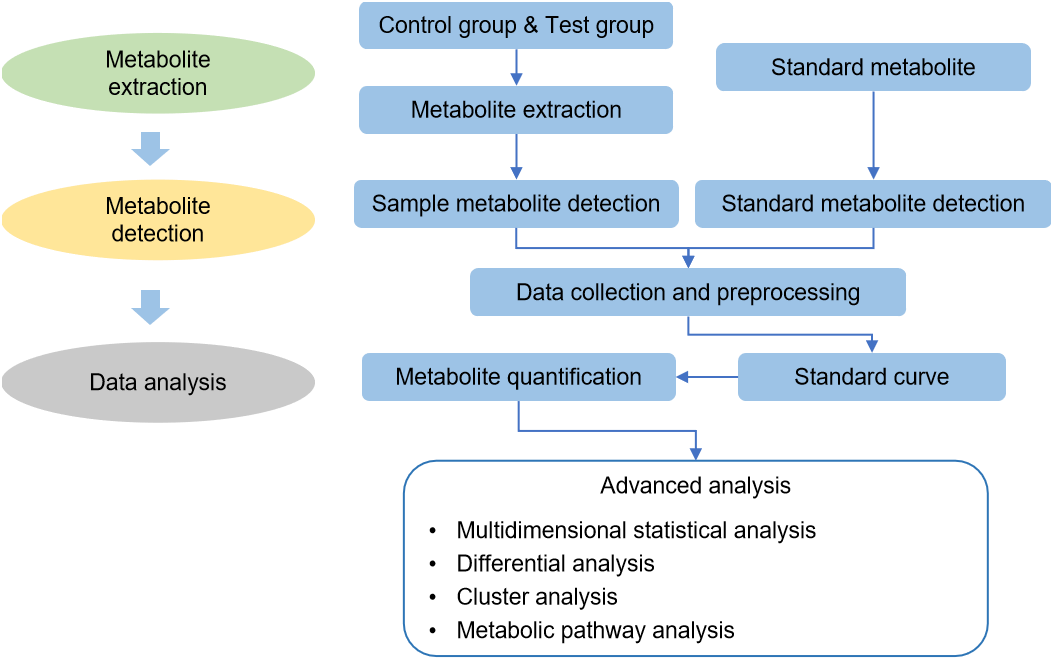
Data Analysis for Adenosine Triphosphate Analysis
| Step | Description |
|---|---|
| Data Preprocessing | - Correction for technical variations and noise removal. - Data normalization. |
| Statistical Analysis | - Identification of significant differences in ATP and metabolite levels. - Use of statistical tests. |
| Pathway Analysis | - Exploration of enriched metabolic pathways involving ATP. - Biological context assessment. |
| Visualization | - Creation of visual representations (e.g., heatmaps, plots) to visualize data distribution and relationships. |
| Biological Interpretation | - Interpretation of results within the context of the research question and biological processes. |
| Validation | - Validation of findings through independent methods or additional experiments. |
| Report and Publication | - Summarization and dissemination of results through research papers or presentations. |
Sample Requirements for Adenosine Triphosphate Metabolism Analysis
| Sample Type | Minimum Quantity | Storage Conditions | Additional Notes |
|---|---|---|---|
| Tissue Samples | 50-100 mg | Store at -80°C | Snap-freeze immediately after collection. |
| Blood Samples | 1-2 mL | Store at -80°C | Use EDTA or heparin tubes for anticoagulation. |
| Cell Cultures | 1-2 x 106 cells | Store in liquid nitrogen (-196°C) | Harvest cells during log-phase growth. |
| Urine Samples | 10-20 mL | Store at -80°C | Collect in sterile containers. |
| Serum/Plasma | 1-2 mL | Store at -80°C | Centrifuge samples before storage. |
| Saliva Samples | 1-2 mL | Store at -80°C | Collect in RNA-free tubes. |
| Cerebrospinal Fluid | 0.5-1 mL | Store at -80°C | Collect using aseptic techniques. |


